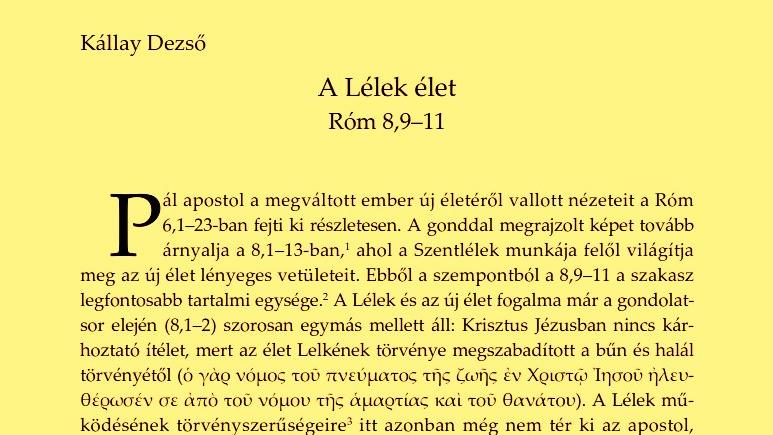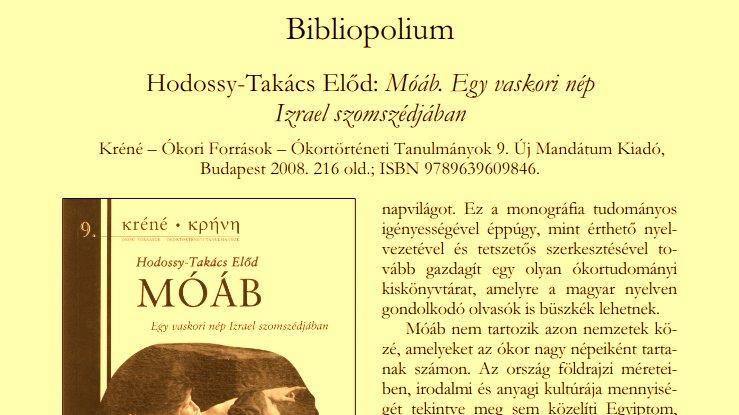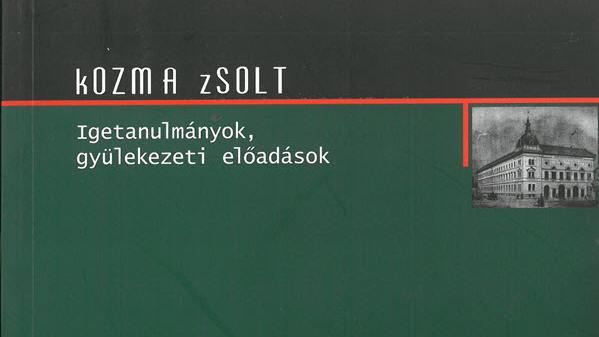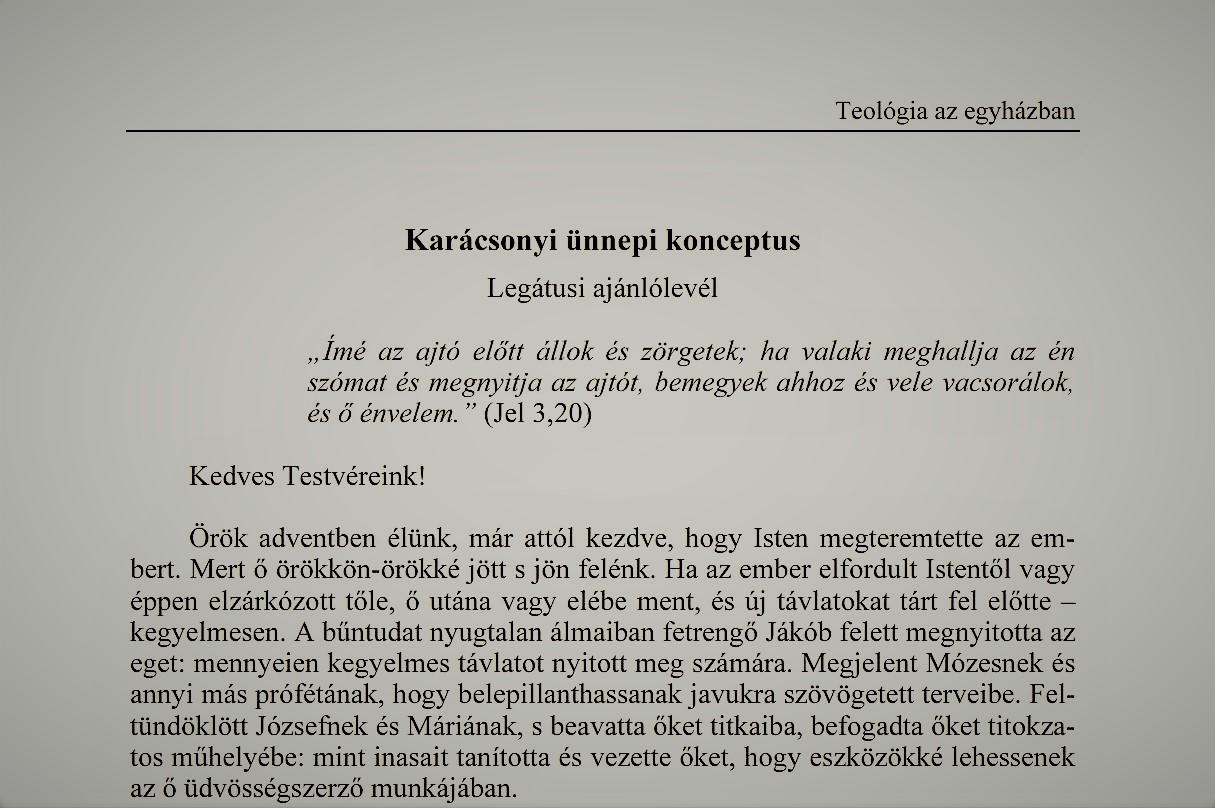Publications
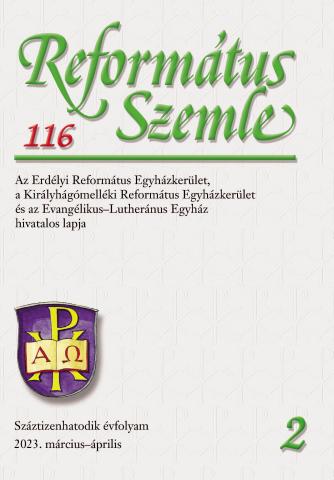
Biró István › 2023 › Pages: 182--211Az erdélyi református egyház a trianoni békeszerződés után egy teljesen új, addig soha nem tapasztalt helyzetben találta megát. Az impériumváltást követő években azonban elindult egy eszmei útkeresés nemcsak az irodalom és a közélet terén, hanem az egyház életében is. Az erdélyi magyar értelmiség ezen útkereséséhez jelentős mértékben hozzájárultak a korabeli református egyház vezetői, teológiai tanárai és lelkipásztorai, akiknek elmélkedéseik, gondolataik ma is jelentős tartalommal és hatással bírnak. Jelen tanulmány célja az volt, hogy feltárja ezeket az 1920 és 1944 között megjelent…
Research article › Church history › erdélyi református egyház, nemzeti identitás, transzilvanizmus, nacionalizmus, két világháború között
Sógor Géza › 2023 › Pages: 169--181Gyakran találkozunk a szekularizáció fogalmával. Mit jelentett egykor, mit jelen ma? A tanulmányban körbejárom a kérdést. Tisztázom a fogalmakat, felvázolom a folyamat rövid történetét, rákérdezek a jelenség bibliai értelmére, megnevezek teológiai félreértéseket, majd felvillantom a szekularizáció folyamatában rejlő lehetőségeket, kihívásokat és feladatokat a keresztyén gyülekezet számára.
Research article › Systematic theology › szekularizáció, egyház és világ, elvilágiasodás
Nagy Eszter › 2023 › Pages: 139--168„A kötődés a bölcsőtől a sírig létfontosságú szerepet játszik az ember életében”– vallja John Bowlby pszichológus. Kutatásom által hidat képezek a kötődéselmélet pszichológiai síkon megalapozott elmélete és a pásztorálteológia között. Célom arra rávilágítani, hogy a gyermekkorban kialakuló kötődési minták (biztonságos, szorongó-elkerülő, szorongó-ambivalens és dezorganizált) hatással vannak a felnőtt létre, jelen esetben a lelkipásztorok, mint a gyülekezet élén álló vezető személyek kapcsolati rendszereire. Ennek feltérképezéséhez az empirikus kutatás módszereit is segítségül hívtam. A…
Research article › Practical theology › lelkigondozás, kötődéselmélet, gyermekek lelkigondozása, személyiségfejlődés
Jónás Norbert-Ferenc › 2023 › Pages: 109--138A prozelita kifejezés az intertestamentális korban nyeri a zsidó hitre áttért pogány származású ember jelentést. Ebben a korszakban fogalmazzák meg az betérést megelőző feltételeket, és szögezik le a belépéshez nélkülözhetetlen rituális cselekedetek sorrendjét és értelmét. A zsidó társadalomban a prozeliták is jog által meghatározott státust nyernek, amit a rabbinikus irodalom kellőképpen tárgyal. Egyes konzervatív vagy fundamentalista beállítottságú csoportok ellenezték mind a térítést, mind a prozeliták befogadását. A diaszpórában viszont sokkal inkább misszió szándékú a nyitottság. Ez a…
Research article › New Testament, Varia, Judaica › prozelitizmus, körülmetélkedés, keresztség, pogányság, zsidóság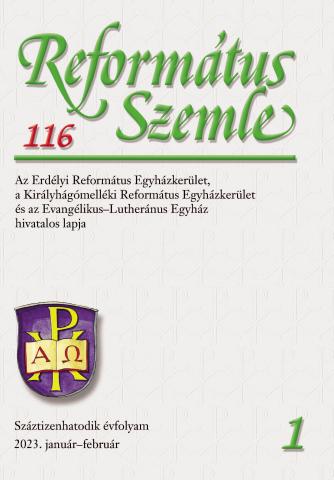
Kató Szabolcs Ferencz › 2023 › Pages: 102--104Report › Varia, Other › Kolozsvári Protestáns Teológiai Intézet, nyílt nap
Kovács Sándor › 2023 › Pages: 99--101Elhangzott 2023. február 16-án a Magyar Unitárius Egyház kolozsvári Vallásszabadság Házában megrendezett könyvbemutatón, ahol ft. Kovács István unitárius püspök üdvözlő szavai és az itt közölt bemutatás után dr. Bódis György igazgató-főorvos, az Erdélyi Múzeum-Egyesület alelnöke ismertette a könyv orvosi vonatkozásait, majd pedig a szerző beszélt a kötet keletkezéséről.
Review › Church history › unitárius egyház, családtörténet
Kulcsár Árpád, Pálfi József › 2023 › Pages: 90--94Review › Systematic theology › dogmatika, református dogmatika
Ilkei Lóránd › 2023 › Pages: 83--89Review › New Testament › szentháromságtan, Comma Iohanneum, bibliakritika
Nagy Norbert › 2023 › Pages: 76--82Az emberben minden időben ott élt a vágy, hogy a világmindenség titkait megfejtse. A válaszok megfogalmazásakor azonban szembesülnie kellet azzal, hogy nyelv által képtelen mindent meghatározni. A mítoszok szekularizálásával ugyanis elvesztettük kapcsolatukat a költői nyelvvel, ami megadhatná a belépés lehetőséget a nyelven túli állapotokba. A megoldás a titok erejének újra felfedezése lehet. Mindez az egzisztenciális metafora által megtörténhet, és az ember újra képessé válhat az Isten titkának a megélésére.
Essay › Varia, General theology, Other › hermeneutika, metafora, mítosz, szekularizáció
Debreczeni István › 2023 › Pages: 55--75Ebben a dolgozatban egy provokatív kérdéskörrel szembesülünk. Felelős-e a keresztyénség az egyre súlyosbodó környezeti válságért? Hogyan értelmezhetjük a teremtésvédelem perspektívájából a dominium terrae megbízatást? A teremtéselbeszélések kontextuális olvasata során kiderül, hogy az Isten által az emberre ruházott uralom gyakorlása bizonyos feltételekhez és körülményekhez kötött. Az ember Isten képmásaként, a teremtési közösség részeként, a bűn árnyékában, de Isten uralma alatt és iránta viselt felelősséggel hivatott e megbízását gyakorolni. E sokoldalú viszony egyik lehetséges…
Research article › Systematic theology › teremtés, teremtésvédelem, ökoteológia, sáfárság, kizsákmányolás
Kulcsár Árpád › 2023 › Pages: 30--54A tanulmány a Váradi-Biblia megjelenésének 360-ik évfordulójára készült, és a 20 századi magyar Újszövetség-fordítások közül Ravasz László 1971-ben megjelent fordításához fűzött magyarázatait és egyedi fordítási megoldásait vizsgálja, valamint kitér a gyülekezeti bibliaórákon elhangzott Újszövetség-magyarázataira is, amelyek közül részletesebben foglalkozik a Jelenések könyve 17–18-ik fejezeteihez fűzött magyarázataival.
Research article › New Testament › bibliafordítás, bibliamagyarázat, Jelenések könyve
Adorjáni Zoltán › 2023 › Pages: 5--29A szenvedés titok is. Szenved az istenkáromló és az igaz is. Jézus sem fedte fel annak okát, hogy az a jeruzsálemi ember miért született vakon. Azt viszont felfedte és számtalanszor példázta, hogy mit kell tenni a szenvedőkkel. Aki pedig felkarol bármely nyomorúságba esett embert, abban Isten hatalma cselekszik. Ez a mi felkarolásunk ugyanaz az a felkaroló, vigasztaló, testet lelket gyógyító csodatett, amelyet Isten tett és tesz. Az itt közölt írás, amely egy előadás kibővített és szerkesztett változata, a szkólékobrótosz (σκωληκόβρωτος) néven ismert betegség kérdéskörébe enged betekintés…
Research article › Old Testament, New Testament, Judaica › betegség, istenkáromlás, Jób testamentuma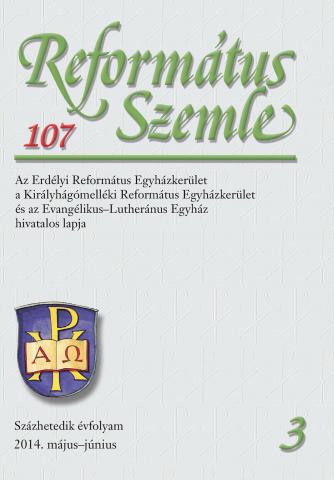
Hermán János › 2014 › Pages: 303--333A most előkerült nagyváradi Barth-interjú azért is fontos, mert eddig úgy tudták egy 1939-es levele alapján, hogy Barth feltételezhetően ettől a dátumtól kezdve tett egyenlőségjelet a bolsevizmus és a fasizmus közé, és hogy akkor állapította meg: a nemzeti szocializmus és a bolsevizmus egymásnak rokonai. Barth tehát ettől kezdve hitt a „Hitlerei” bukásában. Az interjúból azonban az derül ki, hogy mindezekről már 1936-ban is beszélt nyilvánosan, Nagyváradon.
Research article › Church history › bolsevizmus, fasizmus, kommunizmus, Barth Erdélyben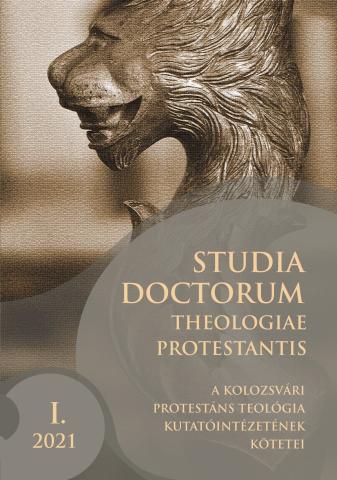
Tódor Csaba › 2021 › Pages: 105--120Examining Some Ethical Issues in the Context of War -- One of the main questions of this paper is whether the arguments in defence of war can be coupled with equal concern for the laws of war. While a permissive reading of the classical, theological just war tradition draws a number of conclu-sions that can be debated, this essay has attempted to draw attention to the fact that Augustine's questions of disordered political commitments (loves) are insep-arable from the more familiar questions of “right reason”, “right power” and “right intention”. Augustine’s reading reminds us that…
Research article › Systematic theology › háború, szociáletika, nemzetközi jog
Szűcs Bernadett, Papp György › 2021 › Pages: 77--104Valentinus and His Teaching in the Light of Modern Research and Ancient Christian Heresiology -- The first part of this paper contains a summary of the life and teachings of Valentinus written by Bernadett Szűcs, in which the author sketches the most important aspects of this complex topic based on the early Christian primary sources harmonized with the state of the modern research. As an appendix to this introduction, the second part of this paper, written by György Papp contains the first Hungarian translation (accompanied by the original Greek text from the recently published critical…
Research article › Systematic theology, Church history › tévtanítás, valentiniánusok, gnoszticizmus
Éles Éva › 2021 › Pages: 58--74Anthropological additions to the parable of the ten virgins Matthew 25:1–13 -- The parable of the ten virgins is generally considered to be as the most ambi-guous parable of Jesus in terms of its origin and meaning. Researchers wonder: can be viewed its context in Matthew’s little apocalypse as the very first interpretation of the early church? Is it a genuine, composite text or more a compilation of traditions at all? While these are relevant questions, this paper pays more attention to its final form. The research attempts to reasess its significance through anthro-pological…
Research article › New Testament › példázat, antropológia, eszkatológia
